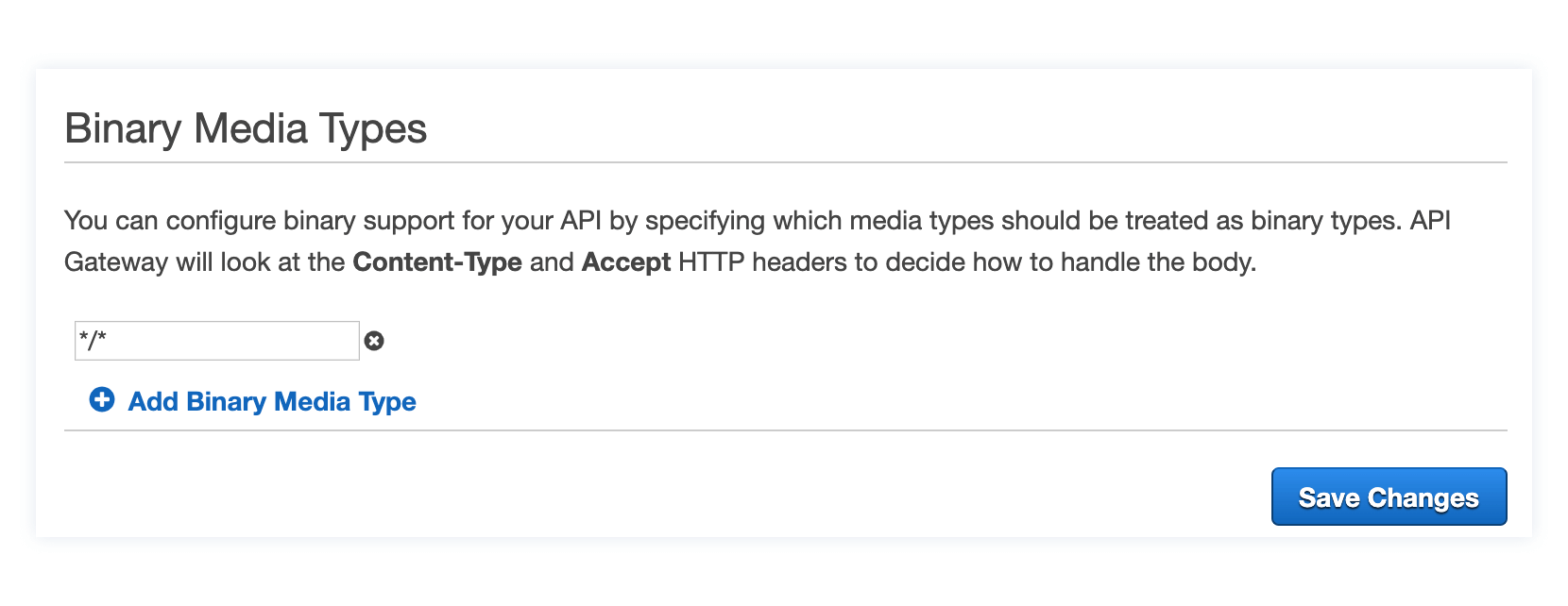@supercharge/hapi-aws-lambda
v2.0.0
Published
Run your hapi server in an AWS Lambda function
Downloads
8
Readme
Introduction
Serverless is becoming popular and widely accepted in the developer community. Going serverless requires a mindset shift. Going serverless requires you to think stateless.
This @supercharge/hapi-aws-lambda package let’s you use your hapi.js HTTP server on AWS Lambda.
This package wraps your hapi server and transforms an incoming event from Lambda and API Gateway into a request. The request will be injected into your hapi server and the resulting response transformed into an API-Gateway-compatible format.
It’s basically a “done for you” package to run your hapi server in a serverless function AWS Lambda.
Requirements
hapi v19 (or later) and Node.js v12 (or newer)
This plugin requires hapi v19 (or later) and Node.js v12 or newer.
Compatibility
| Major Release | hapi.js version | Node.js version |
| --- | --- | --- |
| v2 | >=19 @hapi/hapi | >=12 |
| v1 | >=18 hapi | >=8 |
Installation
npm i @supercharge/hapi-aws-lambdaUsage
Using @supercharge/hapi-aws-lambda is a two-step process:
The Lambda Function
Using @supercharge/hapi-aws-lambda is pretty straightforward:
'use strict'
const Hapi = require('@hapi/hapi')
const LambdaHandler = require('@supercharge/hapi-aws-lambda')
// this `handler` will be used as a cached instance
// a warm Lambda function will reuse the handler for incoming events
let handler
module.exports.handler = async event => {
if (!handler) {
// First, compose your hapi server with all the plugins and dependencies
server = new Hapi.Server()
await server.register({
plugin: require('@hapi/vision')
})
// Second, create a handler instance for your server which will
// transform the Lambda/API Gateway event to a request, send
// the request through your hapi server and then create
// an API Gateay compatible response
handler = LambdaHandler.for(server)
}
return handler.proxy(event)
}Configure Binary Media Types
Serving images from an HTTP server running in a Lambda function won’t work out of the box. When neccessary, @supercharge/hapi-aws-lambda Base64-encodes the response data so that AWS API Gateway can handle the response body.
You need to explicitely configure binary media types in your the API Gateway that is responsible for your Lambda function. Here’s a screenshot of the */* configuration we use:

Deployment Example
There’s a deployment example in the superchargejs/playground-aws-lambda repository.
We used the Serverless framework to deploy the Supercharge app in the playground-aws-lambda repository. The Serverless CLI is sweet. Here’s the sample serverless.yml used to deploy the app:
service: supercharge-aws-lambda
provider:
name: aws
runtime: nodejs12.x
region: eu-central-1
functions:
app:
handler: server.handler
memorySize: 384 # default is 1024 MB
events:
- http: ANY /
- http: 'ANY {proxy+}'
plugins:
- serverless-offlineContributing
Do you miss a string function? We very much appreciate your contribution! Please send in a pull request 😊
- Create a fork
- Create your feature branch:
git checkout -b my-feature - Commit your changes:
git commit -am 'Add some feature' - Push to the branch:
git push origin my-new-feature - Submit a pull request 🚀
License
MIT © Supercharge
superchargejs.com · GitHub @superchargejs · Twitter @superchargejs
